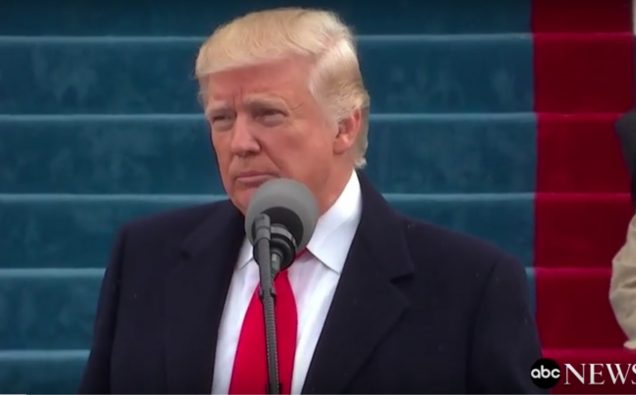
President Donald Trump has applauded Pakistani authorities’ arrest of Hafiz Muhammad Saeed — chief of the banned Jamaatud Dawa (JuD) – of being mastermind of 2008 Mumbai bombings that also killed several Americans.
Both the United States and India have accused the cleric of masterminding the deadly 2008 Mumbai attacks that escalated Pakistan-India tensions to a dangerous point. Washington used its influence to prevent the tensions from spiraling into a conflict between its nuclear-armed allies.
The Pakistani police arrest of Saeed comes on the eve of Prime Minister Imran Khan’s meeting with President Donald Trump that takes place on July 22.
In his Twitter message, Trump, who didn’t name Saeed, credited pressure for the arrest. “After a ten-year search, the so-called ‘mastermind’ of the Mumbai Terror attacks has been arrested in Pakistan. Great pressure has been exerted over the last two years to find him!”
After a ten year search, the so-called “mastermind” of the Mumbai Terror attacks has been arrested in Pakistan. Great pressure has been exerted over the last two years to find him!
— Donald J. Trump (@realDonaldTrump) July 17, 2019
Hafiz Saeed — who has a $10 million U.S. bounty on his head — was taken into custody earlier in the day by Punjab’s Counterterrorism Department in central Pakistan city of Gujranwala in a terror financing case.
He has been sent to a prison on judicial remand.
Saeed had been previously placed under house arrest in January 2017. He, however, was released in November the same year after a court rejected the government’s plea for a 60-day extension in his house arrest.
Protestors outside Taj Mahal Hotel in Mumbai Image: Vegpuff [CC BY-SA 3.0 (https://creativecommons.org/licenses/by-sa/3.0)]
The U.S. Treasury Department branded the LeT chief a Specially Designated Global Terrorist in May 2008 and in December 2008, the United Nations also designated him a “terrorist individual”. Both designations blamed him for the November 2008 Mumbai attack in which 166 people, including six American citizens, were killed.
Pakistan has also moved against other JuD militants. On July 3, the top 13 leaders of the banned JuD, including Saeed and Naib Emir Abdul Rehman Makki, were booked in nearly two dozen cases for terror financing and money laundering under the Anti-Terrorism Act, 1997.
The CTD registered cases in five cities of Punjab, accusing the JuD of financing terrorism from its funds collected in the name of welfare projects including Al-Anfaal Trust, Dawatul Irshad Trust, Muaz Bin Jabal Trust.













